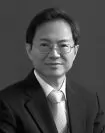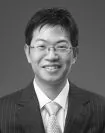Financial Services Commission ("FSC") recently announced proposed changes to regulations regarding asset management businesses and called for industry feedback. A number of the proposed changes include items that will be of interest to foreign asset managers. The updated regulations are expected to be finalized and take effect around November this year.
Although following would not necessarily reflect the forthcoming amended regulations, the items discussed will provide insights to the direction in which Korean fund regulations are heading. This discussion should provide valuable lead time to strategize your future business opportunities in Korea.
1. Private fund business for Korean High Net Worth Individuals ("HNWI")
Under current laws and regulations, if a foreign asset manager wishes to sell offshore funds to Korean HNWIs, the offshore funds must be registered in Korea pursuant to "regular registration" requirements. These requirements involve complicated eligibility tests, extensive disclosure obligations and maintenance burdens.
However, according to the proposed changes, foreign funds will be allowed to be sold to broader group of professional investors provided that the relevant foreign fund is registered pursuant to the "simplified registration" requirements. Notably, HNWIs and listed companies will be considered as eligible professional investors as defined under the expanded simplified registration regime.
More detailed information regarding this expansion of scope and the specific criteria of the high net worth test are available upon request.
2. Introduction of public Fund of Hedge Funds investing diversified private funds
Under current laws and regulations, public funds domiciled in Korea are not allowed to invest in private funds.
However, according to the proposed changes, Korean public funds will be allowed to invest in private funds (in the case of foreign funds, such foreign funds need to be registered in Korea), provided that the target funds are diversified. This will increase business opportunities for foreign asset managers vis-a-vis Korean public fund managers for the fund of funds ("FoFs") business. According to the proposed changes, the general single manager concentration limit will not apply (up to 100%), but the concentration limit of 20% in a single product will continue to apply.
More detailed information regarding the structure and regulation of the new FoFs business model is available upon request.
3. Flexibility for asset allocation FoFs.
Under current laws and regulations, FoFs investing in diversified (public) funds are subject to 50% single manager concentration limit.
However, according to the proposed changes, if a FoFs employs an investment strategy whereby the asset manager, (i) selects a number of target funds (such target funds may be foreign funds and would be exempt from registration under this structure) with different asset classes or investment strategies, and (ii) periodically rebalances the allocation of such target funds, such FoFs will be exempt from the single manager concentration limit. However, the concentration limit of 20% in a single product will continue to apply.
More detailed information regarding the structure and regulation of the new FoFs business model is available upon request.
4. Others
Other proposed changes include a number of other aspects of asset management business. Notable examples include: (1) introduction of guidelines for so-called "Robo Advisors", (2) enhanced flexibility with performance fee bearing public funds, and (3) the introduction of actively managed ETFs.
If there are any specific areas of interest, we will be pleased to offer more detailed information and advice.
We foresee that the changes discussed above, among others, will have a positive effect on your future business in Korea. Eased regulatory burdens add potential for higher profits.
Yulchon is well equipped with asset management professionals with extensive experience in designing financial products in compliance with Korean regulatory requirements. Our team can help you develop your business strategy and collaborate with Korean asset managers who may serve as partners for such up-coming business opportunities.
Originally published in Finance Legal Update 2016.06
The content of this article is intended to provide a general guide to the subject matter. Specialist advice should be sought about your specific circumstances.





